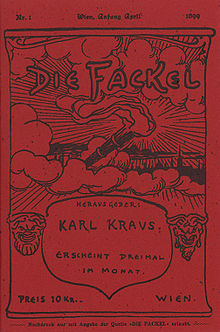institution 有名/眾所周知的人物 不是典範
In 1985, Enid Nemy
wrote in The New York Times that Mr. Battelle had become “more than
currently fashionable” — although he was still that. He was, she
declared, “an institution.”
1985年,伊妮德·內米(Enid Nemy)為《紐約時報》撰文,稱巴特爾先生已經「超越了流行風尚」——儘管他依然流行。她說,他已經成為「一種典範??」。
institution
[名]
1
(1) (社会的・教育的事業などのための)会, 協会, 学会, 団体, 院, 所
(3) ((婉曲))(養老院・孤児院などの)施設.
5 《教会》聖体の設立;聖職叙任.(1) (社会的・教育的事業などのための)会, 協会, 学会, 団体, 院, 所
a charitable institution
慈善団体
慈善団体
a public institution
公共機関
公共機関
a financial institution
金融機関.
(2) その建物, 会館.金融機関.
(3) ((婉曲))(養老院・孤児院などの)施設.
institution
Pronunciation: /ɪnstɪˈtjuːʃ(ə)n/
Definition of institution
noun
The ecological vision: reflections on the American condition by Peter Drucker
相當好的一本書
現在中國有一翻譯本
管理的新角色:社會生態學視野下的美國
(評 很少加原文 注解有些錯誤 譬如說76頁 英國的特殊 chapel意思 原書中已指出那是給給非官員或貴族的商人用的 他們是國教........第14章The Unfashionable Kierkegaard 翻譯成"不入流的克爾凱郭爾"也是錯誤的.......)
The Ecological Vision: Reflections on the American Condition
https://books.google.com.tw/books?isbn=0765807254
Peter F. Drucker - 2000 - Nature
Reflections on the American Condition Peter F. Drucker ... But then, the Vienna in which I grew up, was also the home of Karl Kraus (1874-1936), arguably the ...p.455 原文這頁的翻譯錯誤頗多。
Drucker 說社會生態學家的要求之一是尊重語言( respect for language.)......Karl Kraus 是20世紀德文的大師,被翻譯成"他是當時最優秀的德語語言學家"。
And for Kraus, language was morality. Language was integrity. To corrupt language was to corrupt society and individual alike."克勞斯認為,語言就是道德,是誠實的秉性。腐蝕與研就是腐蝕社會和個人。" (頁244)
梁永安譯: 語言是道德的體現,是誠正的體現,
張華譯:這是我個人的小小心得:英文的隱喻往往要譯成明喻,
"克勞斯認為,語言如同道德,如同品格。敗壞語言猶如敗壞社會道德和個人品格。"
卡爾·克勞斯(Karl Kraus 1874年4月28日-1936年6月12日)出生於奧匈帝國境內的基欽(Jičín),死於奧地利維也納,是二十世紀早期最著名的奧地利作家之一。他是記者、諷刺作家、詩人、劇作家、格言作家、語言與文化評論家,並且提拔了許多年輕的作家。
Karl Kraus (April 28, 1874 – June 12, 1936) was an Austrian writer and journalist, known as asatirist, essayist, aphorist, playwright and poet. He directed his satire at the press, German culture, and German and Austrian politics. The Austrian author Stefan Zweig once called Kraus "the master of venomous ridicule" (der Meister des giftigen Spotts).[1]
Contents
[hide]On April 1, 1899, Kraus renounced Judaism, and in the same year he founded his own newspaper, Die Fackel (The Torch), which he continued to direct, publish, and write until his death, and from which he launched his attacks on hypocrisy, psychoanalysis, corruption of theHabsburg empire, nationalism of the pan-German movement, laissez-faire economic policies, and numerous other subjects.

https://en.wikipedia.org/wiki/Karl_Kraus_(writer)
chapel
(chăp'əl)

n.
- A place of worship that is smaller than and subordinate to a church.
- A place of worship in an institution, such as a prison, college, or hospital.
- A recess or room in a church set apart for special or small services.
- A place of worship for those not belonging to an established church.
- The services held at a chapel: Students attend chapel each morning.
- Music. A choir or orchestra connected with a place of worship at a royal court.
- A funeral home.
- A room in a funeral home used for conducting funeral services.
[Middle English chapele, from Old French, from Medieval Latin capella, chapel, canopy, cape (perhaps from a shrine containing the cape of St. Martin of Tours), diminutive of capa, from Late Latin cappa, hooded cloak.]
chapel[chap・el]
- レベル:大学入試程度
- 発音記号[tʃǽpəl]
[名]
1 (教区教会堂・大聖堂以外の)礼拝堂, 小教会堂;(施設・私邸内などの)付属礼拝堂, 礼拝室.
2 ((英))非国教徒の礼拝所 案此解釋待澄清 原指特定宗教團體;(chapelでの)礼拝(式);礼拝への出席
keep [miss] chapel
礼拝式に出席[欠席]する
礼拝式に出席[欠席]する
go to chapel
礼拝に行く(▼無冠詞に注意).
礼拝に行く(▼無冠詞に注意).
3 (教区教会の)分会堂.
4 (礼拝堂や宮廷などの)音楽隊.
5 葬儀場[室].
6 ((英))印刷所;印刷工組合.
━━[形]((英))非国教徒の(non-conformist).
[古フランス語←後ラテン語capella (cappa帽子+-ella指小辞=小さな帽子→ずきんのついた外套(がいとう)). 4世紀のToursの僧St. Martinの外套が保存されている聖所→同種の聖堂. △CHAPLAIN]記一次路思義教堂(The Luce Chapel)的禮拜
沒有留言:
張貼留言